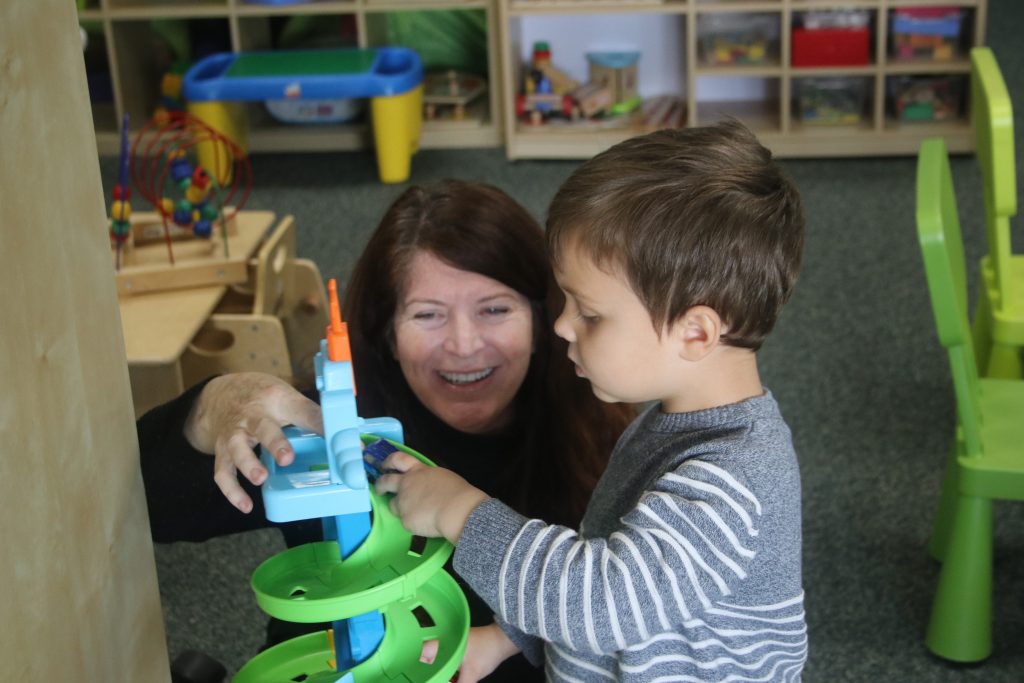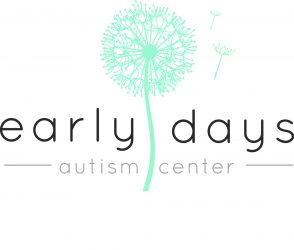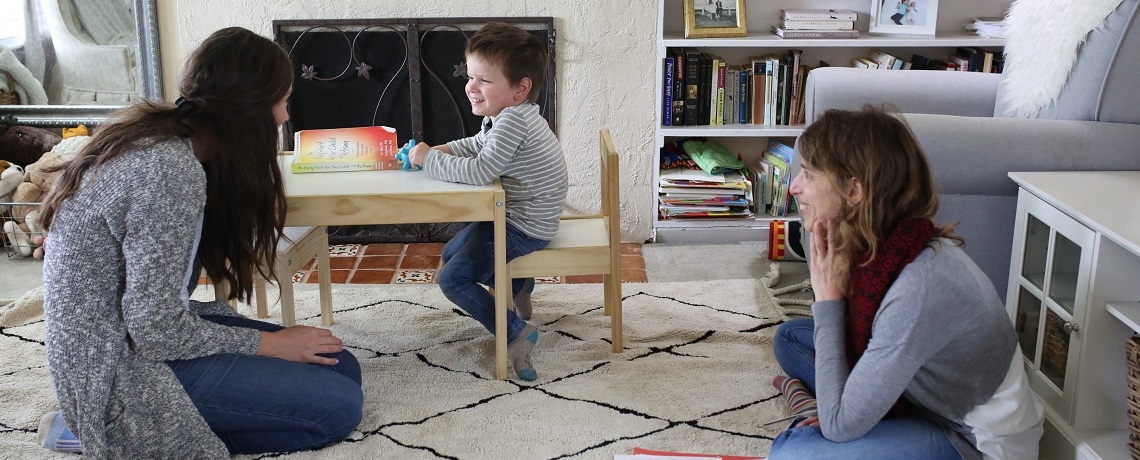Parent Coaching Programs at Early Days Autism Center
Parent Coaching Programs at Early Days Autism Center utilize the Early Start Denver Model that has been tested within a parent delivered approach for toddlers ages 10 months to 35 months. The parent training curriculum of the ESDM addresses the unique needs of children in the 12-24 month period in several ways (Smith et al, 2006). First, the intervention is carried out at home or in natural centers (“parent & me” playgroups), and the parents are centrally involved in planning and implementing the learning goals. Parents are taught to choose materials, activities and routines that are enjoyable and interesting for their child. By reading their cues and following their interests, play routines that add meaning and predictability for their child are developed. Parents are taught to develop joint activity routines that are designed to build skills and “fill in” current gaps for the child.
In the Early Days Parent Playgroup, parents attend education sessions every week that follow the An Early Start for Your Child with Autism curriculum written by Rogers, Dawson & Vismara to build their skills in incorporating the Early Start Denver Model approach into their natural caretaking and family routines as well as play activities throughout the day with their child. Parents and Children also attend weekly playGroup sessions to receive hands-on coaching to encourage practice of the weekly teaching topics. For those children who show interest and skills in playing with other children within the group, parents are taught how to support peer interactions that facilitate peer interaction skills. Sessions are 12 weeks long.
The goals of the Early Days PlayGroups are to empower parents by increasing their knowledge and tools in teaching their child, promoting a positive parent-child relationship and sense of personal accomplishment, and generalizing the skills the child has learned from within everyday family activities into the community.
Parent Training Curriculum: Parent training is a key feature of the ESDM. Dr. Zierhut Ursu has been engaged in parent training since 2007 via a 1:1 delivery. She then tested a group delivery of the parent training format in two separate parent groups in 2011-2012. There are 12 teaching topics that comprise the ESDM parent curriculum. They are as follows:
- Step into the Spotlight: Capturing Your Child’s Attention
- Find the Smile!: Having Fun with Sensory Social Routines
- It Takes Two to Tango: Building Back and Forth Interactions
- Taking Bodies: The Importance of Nonverbal Communication
- “Do What I Do!”: Helping Your Child Learn by Imitating
- Lets Get Technical: How Children Learn
- Writing ESDM Objectives
- The Joint Attention Triangle: Sharing Interests With Others
- It’s Playtime!
- Let’s Pretend
- Moving into Speech
- Putting it all Together
At this time the courses are only available in English, so the parent/caregiver enrolling in the courses must speak and read English fluently.
Parents are required to engage in home practice that includes daily routines that they learn from the ESDM staff.
Families who are clients of the Regional Center are welcome to participate from El Dorado and Sacramento County and from the San Francisco Area and Marin County. Private pay services are provided to families from other areas and telehealth services are also available.
Once a referral is made for an open session or a parent is selected off the wait list the assessment process will commence. Parents are contacted by Dr. Zierhut Ursu or her administrative support staff and an intake assessment which consists of one three-hour appointment will be scheduled. During this appointment, EDAC staff member will come to the family home and will meet the parent(s) and/or carers for the child and the child. The details of the program are explained, parent and child learning goals are developed using the ESDM Curriculum Checklist (Rogers and Dawson, 2010). Parent/caregivers under the supervision of Dr. Zierhut Ursu create a Learning plan containing approximately 10 short term objectives and the related teaching steps.
Efficacy of this approach has been studied extensively and research findings can be found on the Industry News page of our website.



